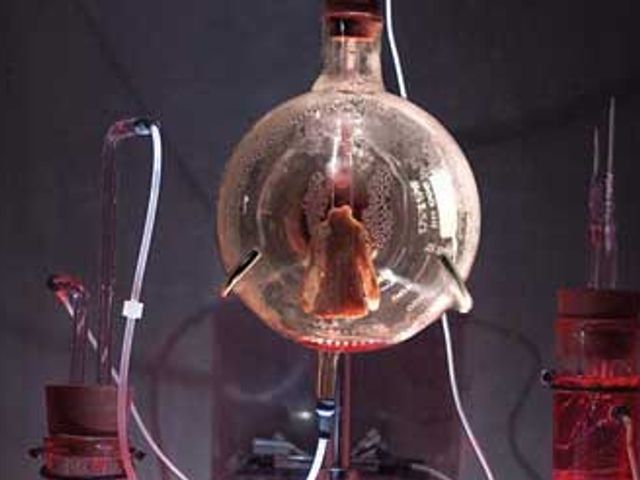Art & Technology
Digital display: Introducing the Adobe Museum of Digital Media
The latest venture from the creators of Photoshop is a virtual art gallery
Fast forward video art
Artists love it as a medium, but are collectors and dealers too busy for time-based work at an art fair?
VIP online art fair overwhelmed by early technical setbacks
Majority of dealers claim disappointment as organisers defend privacy settings and vow to overcome glitches
Museums need to go much further in adapting to the digital age
Are new media museums the future?
Inside Piranesi’s prisons on show at the Venice Architecture Biennale
An immersive, digital film at the Fondazione Giorgio Cini reimagines the artist’s dark fantasies as if in three dimensions
The work of art in the age of cut and paste
Can the law keep up with the speed of digital appropriation, reproduction and distribution? And should it even try?
Infrared-light technology gets funding boost
Technology could foresee deterioration of artworks
Ten years after the hysteria of dotcom boom and bust, the web is finally finding its place in the art market
Leaving the house has never seemed more unnecessary
"Naked scanners" being used to research mummies
A new use for airport screening technology
An advance in iron preservation aids conservators
Work on Civil War submarine leads to pioneering technique
Technology reveals Caravaggio self-portrait
Searching for underdrawings, conservators discover the artist’s reflection
Stopping the passage of time: Colour photography conservation
A new technique aims to prevent colour prints from fading—but is it legal?
Hollywood technology used to examine new Herculaneum find
Researchers see future applications for this cross-over science
New Kinetica fair celebrates kinetic and hi-tech art
The event will be held 28 February to 2 March
Cypriot wall paintings get HIV test as part of conservation strategy
Adapted antibody technique helps conservators find suitable restoration materials
High-tech study could give new life to Moore’s Arch
Development in conservation of sculpture
Can past nuclear explosions help detect forgeries?
The inventors of a new technique for dating paintings say it can prove whether a work was made before or after 1945
MoMA stem cell exhibit dies five weeks into show
“Victimless Leather”, a small jacket made up of embryonic stem cells, was fed nutrients by tube
Books: “Spirit photography”, the paradoxical meeting point of technology and the paranormal
Not about faith or folly, but film as reality
Bill Gates’s Leonardo Codex removed from British Library website
Leading scholar is “saddened” by decision
Art makes a scene in virtual platform Second Life
The online virtual world is becoming one of the best places for artists, curators and dealers to meet
Bill Gates announces there is to be Leonardo for all (those with Vista software)
The billionaire co-founder of Microsoft spoke at the British Library (BL) in January at the glitzy launch of Windows Vista, his company’s new operating system
MoMA puts collection inventories online
This move will substantially increase the accessibility of it's collections
Christie’s launches online bidding
Clients will be able to follow live auctions at home
News from New York: Rocking art, baffling awards, and PaceWildenstein hits a midlife crisis
The prestigious New York firm imitates younger, hipper galleries such as Deitch Projects with a show of video game art
Leonardo underdrawings revealed, putting the authenticity of the Virgin of the rocks beyond dispute
Infra-red examination shows abandoned original design
Simple, small, silent: A celebratory history of the Leica camera
A new book explores the history of the first truly portable camera
Harvard’s barcode revolution: the University makes plans to digitise its huge art collection
By 2007 Harvard will be able to track the collection digitally, and everything will be accessible
Microsoft’s “digital home gallery service” aims to bring any artwork to your home, on the cheap
Everything for the armchair art lover, at the flick of a switch
The story of the Thornham Parva retable shows how technology is increasingly influencing art history
Conservation and connoisseurship joined at the altar


